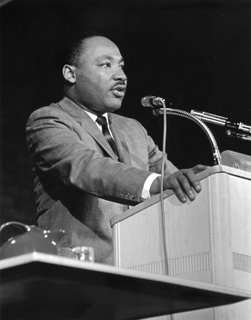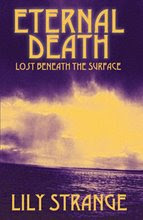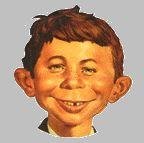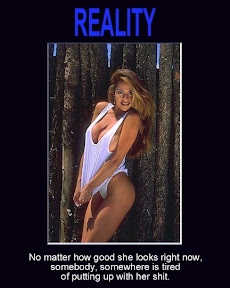




Richard Pryor, one of the best and most influential comedians of his time, is dead at 65. He died at 9:58 a.m. Saturday of heart failure, in a suburban Los Angeles hospital, according to his wife, Jennifer, who told Reuters: "He was my treasure."
He was a national treasure. Born in a brothel, accused of obscenity in his early stand-up days, nearly burned to death in an accident while free-basing cocaine, he went on to star in movies both good and bad, but as a live performer, he was brilliant and fearless and found truths his audiences instinctively identified with.
Although the obituaries will make much of his nearly fatal accident and his long battle with multiple sclerosis, the most significant entry may be this one: In 1998, he won the first Mark Twain Prize for humor from the John F. Kennedy Center for the Performing Arts. He said in his acceptance speech he had been able to use humor as Mark Twain did, "to lessen people's hatred."
ON THE SILVER SCREEN
Some of Richard Pryor's film credits:
''The Busy Body,'' 1968 ''Lady Sings the Blues,'' 1972''Blazing Saddles'' (co-writer of screenplay), 1974''Uptown Saturday Night,'' 1974''The Bingo Long Traveling All-Stars and Motor Kings,'' 1976''Car Wash,'' 1976''Silver Streak,'' 1976''The Wiz,'' 1978''Richard Pryor Live in Concert,'' 1979''The Muppet Movie,'' 1979''Stir Crazy,'' 1980''Bustin' Loose,'' 1981''Some Kind of Hero,'' 1982''The Toy,'' 1982''Superman III,'' 1983''Brewster's Millions,'' 1985''Jo Jo Dancer, Your Life is Calling,'' 1985''Critical Condition,'' 1987''Harlem Nights,'' 1989''See No Evil, Hear No Evil,'' 1989''Another You,'' 1991''Lost Highway,'' 1997
AP
When you look again at his three great performance films, you realize that was exactly what he did: It was when he was live in front of an audience that the full range of his gifts was seen most clearly. Drugs muddled some of the early stages of his career, and his disease finally silenced him, but in the early 1980s, after he was clean and sober and before he fell ill, there was a flowering of genius. In 2004, Comedy Central placed him first on its list of the greatest stand-up comedians of all time.
Mr. Pryor was born Dec. 1, 1940, in Peoria, in a brothel his grandmother owned. He recalled his early years in "Jo Jo Dancer, Your Life is Calling" (1986), an autobiographical film he wrote, directed and starred in. He said it was not entirely factual, but the broad outlines of his life are there, including the day in 1980 when he ran screaming into a Los Angeles street, his body in flames.
25 starring roles
He began as a stand-up comic and made a handful of films before his breakthrough in "Lady Sings the Blues" (1972), as Piano Man, the confidant of Billie Holiday (Diana Ross). Other important roles were in films including "Uptown Saturday Night" (1974), "The Bingo Long Traveling All-Stars and Motor Kings" (1976), "Stir Crazy" (1980), and "Brewster's Millions" (1985).
Although Whoopi Goldberg was the first black host of the Academy Awards (1994), Mr. Pryor was the Oscar co-host in 1976, after earlier black co-hosts Sammy Davis Jr. and Diana Ross. By then he was a major Hollywood star, teamed by the Oscars with Warren Beatty, Ellen Burstyn and Jane Fonda. Oscar invited him back in 1982.
He had about 25 starring roles, often opposite Gene Wilder, who would play the straight man when they did interviews together. This is from their visit to Chicago to promote their biggest hit, "Silver Streak" (1976):
Wilder: "What are you doing next?"
Mr. Pryor: "It's a movie called 'Which Way Is Up?' This Italian director, Lina Wertmuller ..."
Wilder: "No! Oh, my God! I'll kill myself!"
Mr. Pryor: "What you moaning about, man?"
Wilder: "You're going to work with Lina Wertmuller? She passed right by me and saw you and said 'I must have that young man'?"
Mr. Pryor: "You didn't let me finish. She made this movie called 'The Seduction of Mimi,' and this will be a remake, set among the grape pickers of California."
Wilder: "I would have killed myself out of envy."
Mr. Pryor: "And then I'm in a remake of 'Arsenic and Old Lace.'"
Wilder: "Oh, my God! My favorite play next to 'Hamlet.' All black cast, I suppose, nothing for me."
Mr. Pryor: "And then I'm doing 'Hamlet.'"
In "Silver Streak," they did their own stunts, including one where they hung out of a train at 50 mph, Mr. Pryor holding Wilder by the belt.
"I'm thinking, one slip of my foot, and goodbye, Gene!" Mr. Pryor said.
"What gave me a lot of confidence," Wilder said, "was that Richie promised me that if I went, he went, too. If I fell off the train and was killed, he would throw himself after me."
"Of course," said Mr. Pryor, "they had me wired to the train."
Some of his films after that were not as good, including the dreadful "Harlem Nights" (1989) with Eddie Murphy, and in the late 1980s, there was a visible slowing down, the result of multiple sclerosis. There was no slowing down, however, in the three concert films that will preserve his work at its peak. In "Richard Pryor: Live in Concert" (1979), "Richard Pryor Live on Sunset Strip" (1982) and "Richard Pryor Here and Now" (1983), he earned full comparison with Bill Cosby, the grandmaster of the autobiographical stand-up genre.
Wise social observer
In the 1982 film, he dealt frankly with his cocaine addiction and his accident. The movie was filmed live over two nights. We sense at the beginning that he is shaky, but he gains confidence and builds into "the most talented one-man stage show in existence right now," I wrote in my review, effortlessly bringing to life a series of impressions ranging from Mafioso to water buffalos.
The racial content of his humor wasobservational, not confrontational. In the 1982 concert, he mimes an impression of two whites passing each other on the street in Africa. In "Silver Streak," Mr. Pryor told me, there was concern about a scene where Wilder appears in blackface and fools a white man. Mr. Pryor suggested a simple change that turned a possibly embarrassing scene into one of the biggest laughs in the film:
"Instead of a white dude being fooled by the disguise, a black dude comes in and isn't fooled. Here's Gene snapping his fingers and holding his portable radio to his ear, and the black dude takes one look and says, 'I don't know what you think you're doing, man, but you got to get the beat.'"
In "Live on Sunset Strip," Mr. Pryor does a brilliant extended sequence involving his addiction to cocaine. He depicts himself alone in his room with his cocaine pipe, which speaks to him in reassuring, seductive tones. Only gradually do we realize that the pipe is speaking in the voice of Richard Nixon.
It is unclear whether all of Mr. Pryor's drug use was behind him when he made "Sunset Strip." But in "Richard Pryor Here and Now," (1983) he firmly states he is clean and sober, seems more relaxed than we've ever seen him before, and is growing from a comedian into a wise social observer. He does impressions of characters of many races, the humor based on empathy, and has fun with himself as an African American feeling like a foreigner in Africa. In Zimbabwe, he tells an African how surprised he is to be able to speak English everywhere.
"Everybody speaks English," the African tells him, "but what language do you speak at home?"
There is an extended sequence at the end of that film where he shows a street addict shooting heroin. It begins in comedy, ends in pain, moves from self-deception to honesty, and goes far beyond stand-up into what can only be described as inspired acting. That was the direction he was moving in, and we can only wonder what heights he would have achieved if MS had not taken its cruel toll.
Mr. Pryor had seven marriages to five wives, including two to Jennifer Lee (in 1981 and 2001) and two to Flynn Belaine (in 1986 and 1990). He had seven children: Renee, Richard Pryor Jr., Elizabeth Stordeur, Rain Kindlin (herself an actress), Kelsey Pryor, Steven Pryor and Franklin Mason, and three grandchildren. Funeral services will be private, by invitation.
Contributing: AP, Reuters
Copyright © Chicago Sun-Times Inc.
Richard Pryor, Malcom X, Rev Martin Luther King Jr,. fought for negroes in America
Sidney Poitier was a whiteman's negro
Cassius Clay, (Muhammad Ali) and Michael Jackson turned muslim



























17 comments:
keshi is an idol
a celebrity among old bats
FUCK !
how does keshi figure in here?
she aint black
she is brown
she is African Amercian u dork
u tracking my ass!
I wore Fruit of the LOOM jocks
Sheessshhh !
a fruit cake
lubsedingsssssss YOU
Tu bee awr
nawt tu bee
dhat iz dhe
kwestchun
the korrect ansher is dat I lubsedingssssssssssss U
:)
:) @ 8:11 PM
kldhgdlkgklghghlkglkhdjgkljglkjfdjldghlkghdlkjhjghllkhlgdldfleiuwoyeFEK389753987938OAISAHDLDFLKH3298Y4kldhgdlkgklghghlkglkhdjgkljglkjfdjldghlkghdlkjhjghllkhlgdldfleiuwoyeFEK389753987938OAISAHDLDFLKH3298Y4kldhgdlkgklghghlkglkhdjgkljglkjfdjldghlkghdlkjhjghllkhlgdldfleiuwoyeFEK389753987938OAISAHDLDFLKH3298Y4kldhgdlkgklghghlkglkhdjgkljglkjfdjldghlkghdlkjhjghllkhlgdldfleiuwoyeFEK389753987938OAISAHDLDFLKH3298Y4kldhgdlkgklghghlkglkhdjgkljglkjfdjldghlkghdlkjhjghllkhlgdldfleiuwoyeFEK389753987938OAISAHDLDFLKH3298Y4kldhgdlkgklghghlkglkhdjgkljglkjfdjldghlkghdlkjhjghllkhlgdldfleiuwoyeFEK389753987938OAISAHDLDFLKH3298Y4kldhgdlkgklghghlkglkhdjgkljglkjfdjldghlkghdlkjhjghllkhlgdldfleiuwoyeFEK389753987938OAISAHDLDFLKH3298Y4kldhgdlkgklghghlkglkhdjgkljglkjfdjldghlkghdlkjhjghllkhlgdldfleiuwoyeFEK389753987938OAI
sutm pok:)
today is sutm :) pok
Fred, Jim, and Scott were good friends and went to a convention
together
and were sharing a large suite on the top of a 75-story skyscraper.
After a long day of meetings, they were shocked to hear that the
elevators in their hotel were broken and they would have to climb 75 flights of stairs to get to their room.
Bill said to Jim and Scott, "Let's break the monotony of this
unpleasant task by concentrating on something interesting. I'll tell jokes for 25 flights, Jim can sing songs for the next 25 flights, and Scott can tell
sad stories for the rest of the way."
At the 26th floor, Bill stopped telling jokes and Jim began to sing. At the 51st floor, Jim stopped singing and Scott began to tell sad stories.
"I will tell my saddest story first," he said. "I left the room key in the car!"
hee hee hee
where is u
lubsedying to noes u and u
lubsedings u
:)
pokk :)
Post a Comment